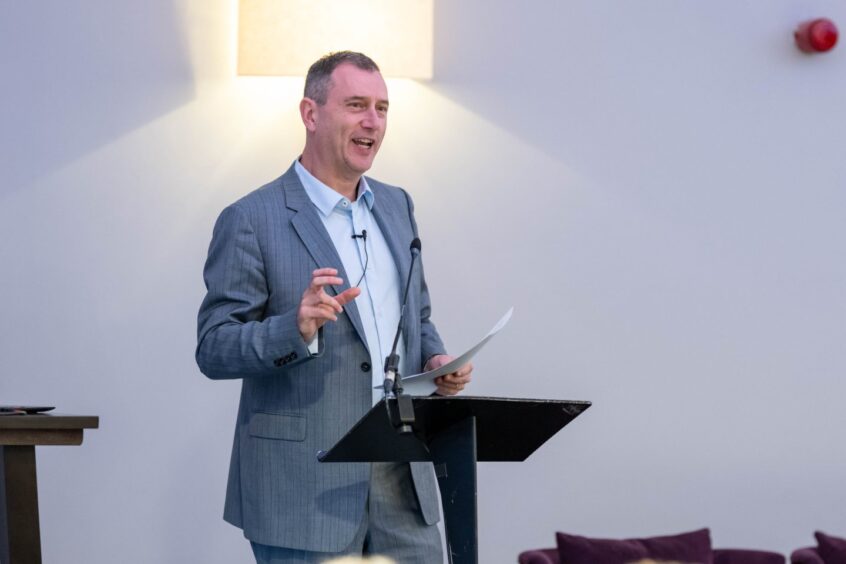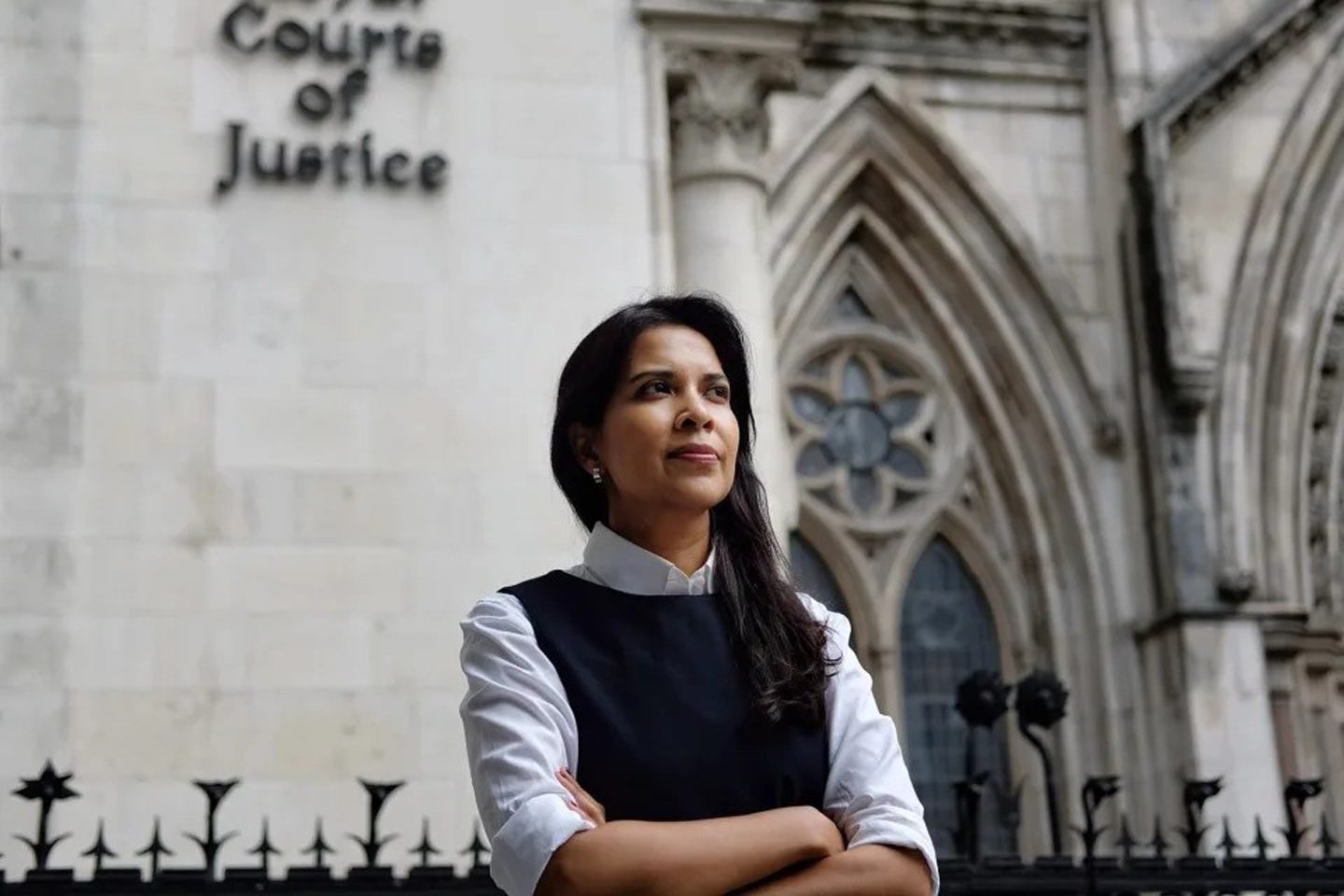
Aberdeen business leaders have called for the removal of the energy profits levy as the Trump administration seeks to impose international tariffs.
The highly controversial energy profits levy (EPL), or windfall tax, brought the headline rate of tax on operators to 78% late last year after Keir Starmer’s government hiked taxes by 3%.
North Sea firms have been locked in a long-running battle against the windfall tax as UK spending has dwindled since its implementation in 2022.
Aberdeen and Grampian Chamber of Commerce (AGCC) has continued to call for the abolishment of the policy as the newly inaugurated president Donald Trump threatens to apply trade tariffs on imports from Mexico, Canada with further murmurs about levies on trade with the European Union.
Russell Borthwick, chief executive of AGCC, commented: “The UK is already heavily reliant upon imported gas from Norway and LNG shipped from the USA to meet our demands.
“Any fluctuations in the price of oil and gas could be very damaging in a world where returns on production from the North Sea are already marginal.”
But the AGCC call to remove the windfall tax has been met with criticism from environmental group Uplift, which said it is “right that these profits are appropriately taxed”.
Trump’s Tariffs
Trump has set tariffs on Chinese products brought into the US, a move that sees Americans facing 10% price increase on Chinese-made goods.
The US president has also been fighting with his North Amercian neighbours, Canada and Mexico, to bring about similar measure on imports from the countries.
However, the threat of sweeping 25% tariffs on Canadian and Mexican imports has eased following talks agreed new border measures.
UK Tax turbulence
In addition to the calls from AGCC, US oil firm Apache announced late last year that it would be leaving the UK by the end of the decade due to the windfall tax.
Other firms have adopted a slightly less drastic approach to Apache, with the UK’s largest producer of oil and gas, Harbour Energy, making moves to internationally diversify its portfolio through the acquisition of German rival Wintershall Dea.
The year after the EPL was implemented, 90% of North Sea operators slashed spending, trade body Offshore Energies UK reported.
Initially imposed by chancellor Rishi Sunak in 2022 the windfall tax – which at the time brought the headline rate to 75% – was in response to soaring gas prices following Russia’s invasion of Ukraine and the reduced supply of hydrocarbons coming from eastern Europe.
The suite of “temporary” measures were brought in to battle the cost-of-living crisis as consumers saw energy bills rise and was said to end when commodity prices returned to “historically more normal levels”.
Last year’s Autumn budget extended the end date of the EPL to March 2030, as chancellor Rachel Reeves removed investment allowances which were previously afforded to operators under the regime.
Capital allowances, which provide tax breaks for new projects, were retained in a move that was welcomed by industry.
Last year UK energy minister Michael Shanks urged North Sea investors to “look beyond” the windfall tax.
However, Borthwick argued: “The smart response would be to remove the EPL sooner rather than later – protecting our domestic energy sector and ensuring we’re not putting the UK economy at a significant disadvantage in an increasingly uncertain global context.”
‘World on the brink of trade war’
As the US looks to discourage imports and investment dwindles in the UK’s oil and gas sector, AGCC has argued that the country “cannot afford” to repeat mistakes.
Borthwick said that the previous government’s response to global markets in 2022 “ran contrary to all good sense”.
He said: “Instead of bolstering domestic supply, enabling production from the North Sea and attracting new investment into the North Sea we have become increasingly reliant upon imports.
“That approach spooked the energy sector and its supply chain and knocked confidence at precisely the moment we should be driving the transition to net zero.
“With the world on the brink of a trade war, we cannot afford to repeat these mistakes.”
Uplift calls for windfall tax to stay
In response to the AGCC calls, campaign group Uplift criticised the “obscene profiteering” of the UK oil and gas sector.
Uplift executive director Tessa Khan said the North Sea offshore sector has “dined out on eye watering profits” while UK households struggled amidst the European energy crisis.
“It is only right that these profits are appropriately taxed,” she said.
Khan said the majority of UK oil and gas production is exported and there are few significant resources remaining in the North Sea.
“It’s a matter of geology that the basin is in decline and, as a result, jobs supported by the industry have more than halved in the past decade,” she added.
“This is despite the industry enjoying one of the world’s lowest headline tax rates for that sector for most of that time.
“Lowering their tax rate will not boost production or protect jobs, it will just increase oil company profits.”
Khan called for the UK to invest in renewable energy and not “double down on expensive oil and gas”.
“The oil and gas industry lobbies relentlessly for lower taxes, but thankfully they are being left behind in an energy transition that will mean the UK can finally be free of their obscene profiteering,” she said.
Alongside fellow campaign group Greenpeace, Uplift has initiated multiple legal challenges against approvals for North Sea oil and gas projects.
In late January, the Court of Session in Scotland overturned approvals for the Rosebank and Jackdaw projects in a case launched by Uplift and Greenpeace.
Recommended for you


 © Supplied by Michal Wachucik
© Supplied by Michal Wachucik © Uplift
© Uplift